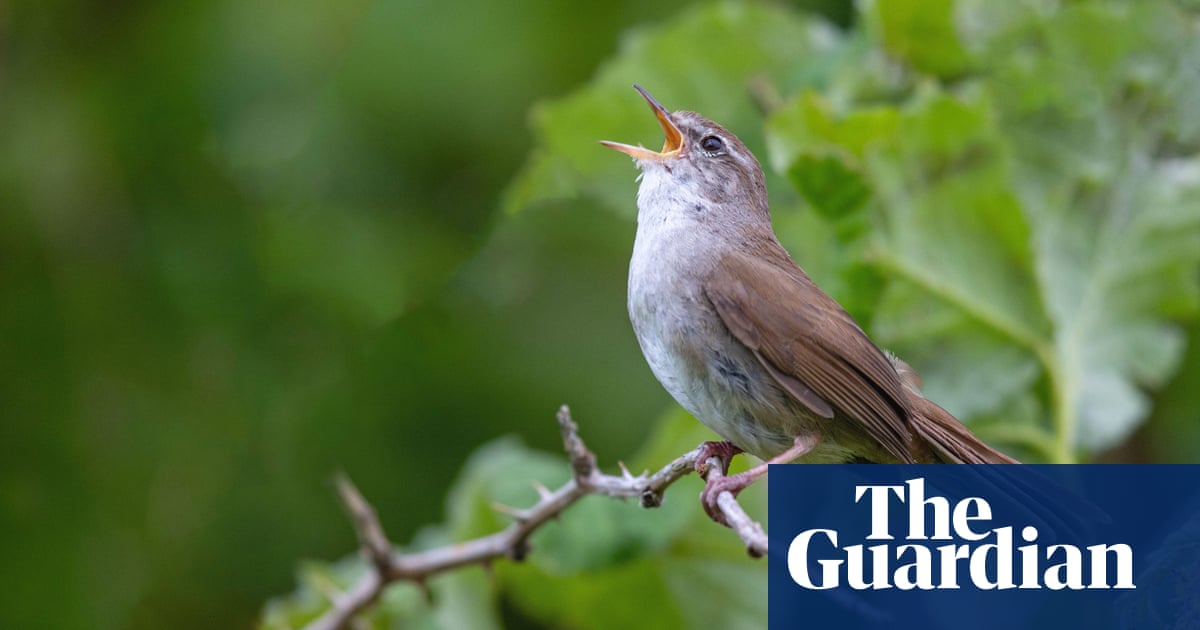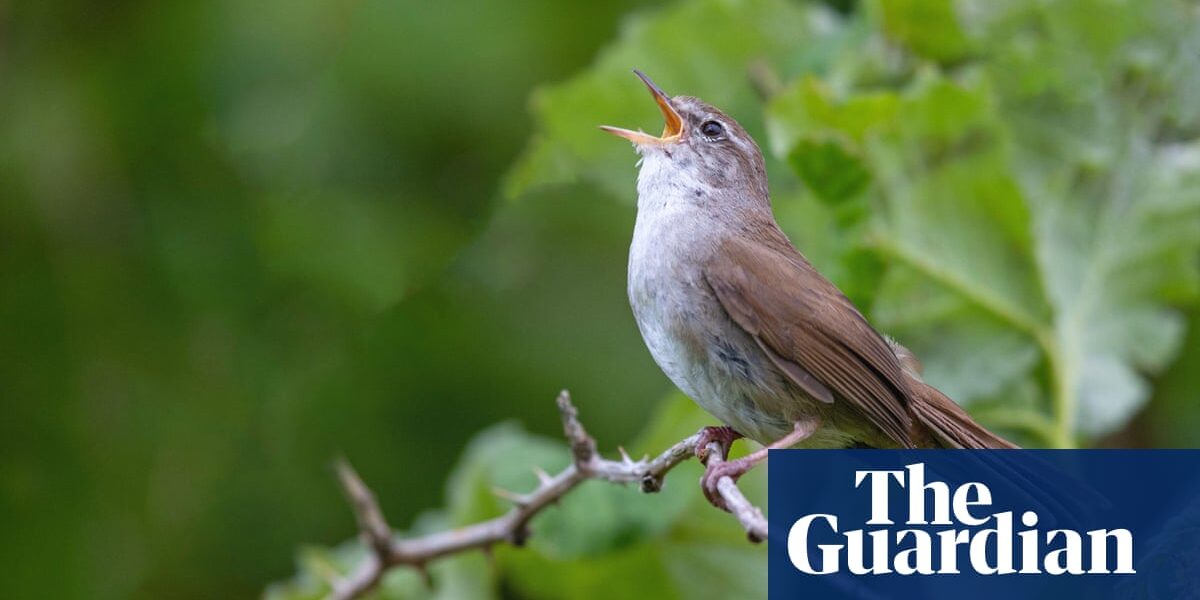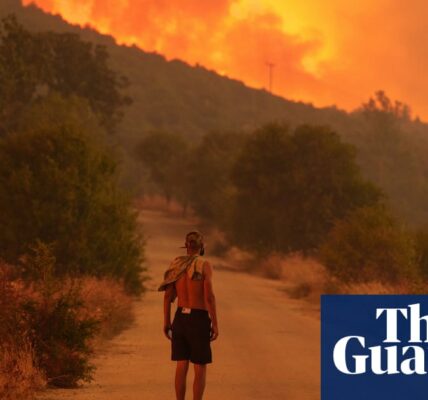Country diary: Explosive but elusive, what a bird the Cetti’s warbler is | Derek Niemann

So many woods have had feet of drowned clay for so long. Even now, some Wildlife Trust reserves are closed to visitors, spring flowering with no one to see it. Every sticky wood is a little quag, a lot of mire.
In our nearest woodland, the six-month flood has largely sunk into the more permeable alluvial silt, leaving a puddled floor. It looks secure enough to venture trainer-clad along the riverside for the first time since October. The path hugs the water’s edge all the way, until just before the empty manor house, where it wiggles around a large bankside bush.
The bush speaks. Field guides give the helpful mnemonic that the Cetti’s warbler sings its name, and it’s true that cetti, cetti captures the pump-action quality of a rocking horse barely under control. But they often fail to acknowledge an equally impressive characteristic, which the eminent ornithologist James Ferguson-Lees called “the most astonishingly loud song among small European birds”. It is an explosion of sound from somewhere in the leafy depths that would be obvious at 300 metres, and at no more than three fills the listening world.
As recently as 2011, the county bird report listed the Cetti’s warbler as a “scarce visitor and rare breeder”, but it predicted correctly that, with a ballooning population in southern England, those explosions would soon blast out from different parts of the Ivel and Ouse valleys. Here it is at last on my soggy home turf. Mild winters undoubtedly help the spread, but why should this insectivorous bird be thriving when so many others are in decline?
People call me a birdwatcher, a birdspotter. Yet I can’t be sure when I last saw a Cetti’s warbler, or indeed if I have ever laid eyes on this notorious skulker. It’s one of a cluster of largely invisible and visually unremarkable warblers – including the willow and grasshopper warblers, and nightingale – that I would not go out of my way to see. But I would walk the earth to hear them. Each has a song like no other. Sing up, cetti cetti.
Source: theguardian.com


